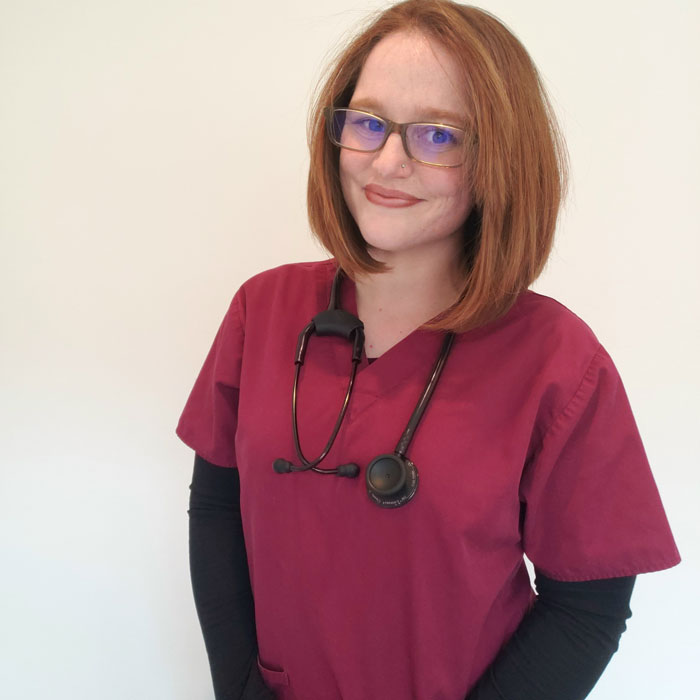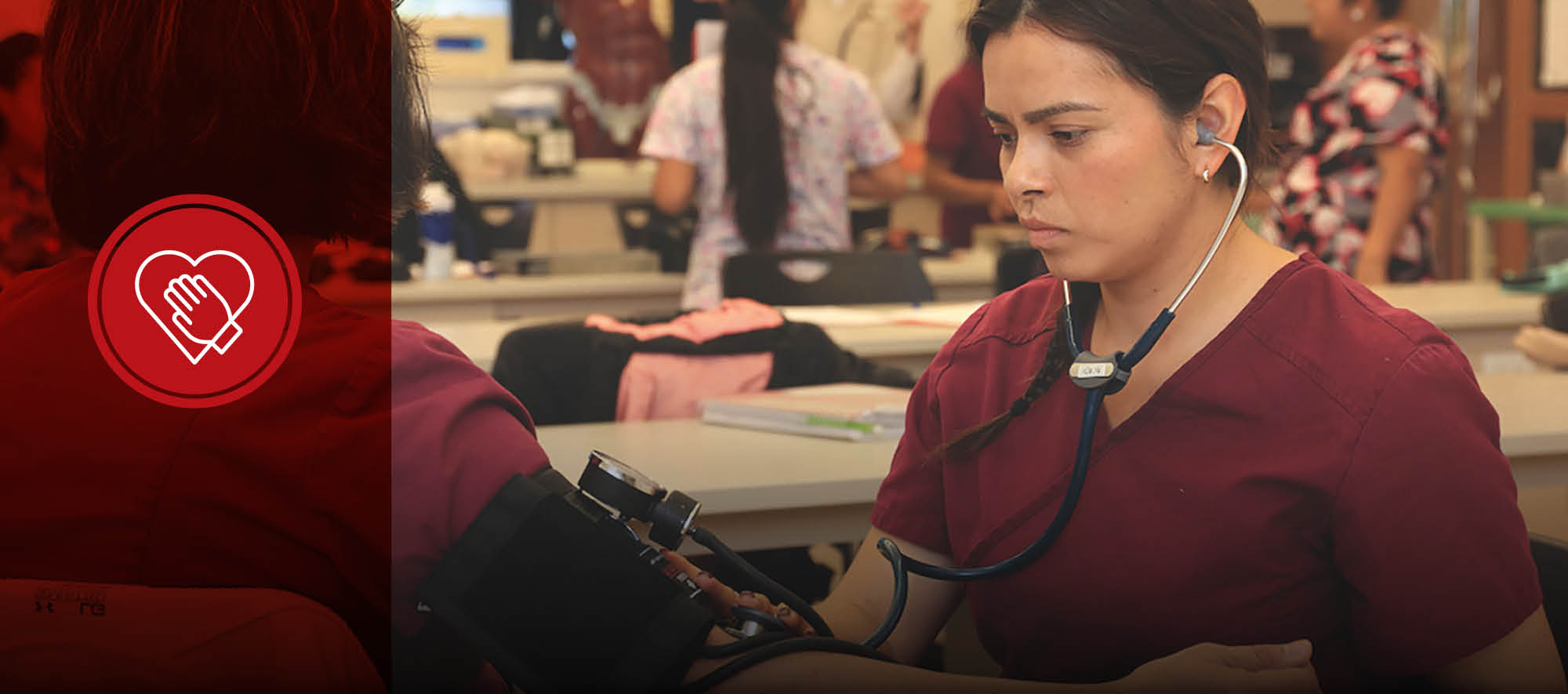Are you compassionate, science-minded and organized? Get a medical assisting degree or certificate at MPC and help medical offices run smoothly while making patients feel comfortable and providing basic care. Qualify for state licensure as a Registered Medical Assistant (RMA).
Meet Your Instructors
Staff DirectorySupport from Classroom to Career
MPC offers quality instruction and support for a smooth transition from college to employment. Classes are held in-person at both our Marina and Monterey campuses as well as online for maximum flexibility.
View Degrees and Certificates Medical Assisting FAQs
Competent Compassion is in Demand
Degrees & Certificates to Choose From
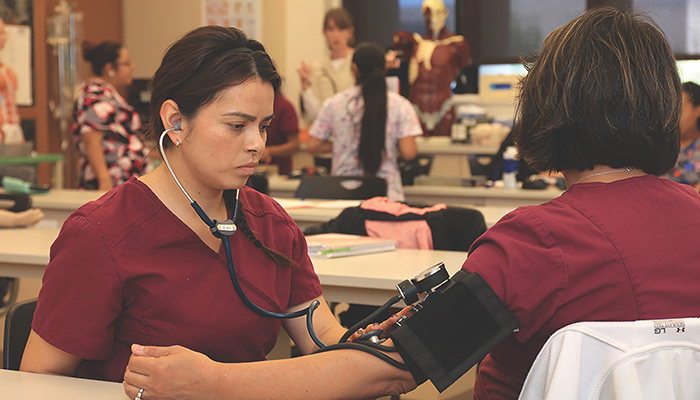
Medical Assisting

Medical Assisting
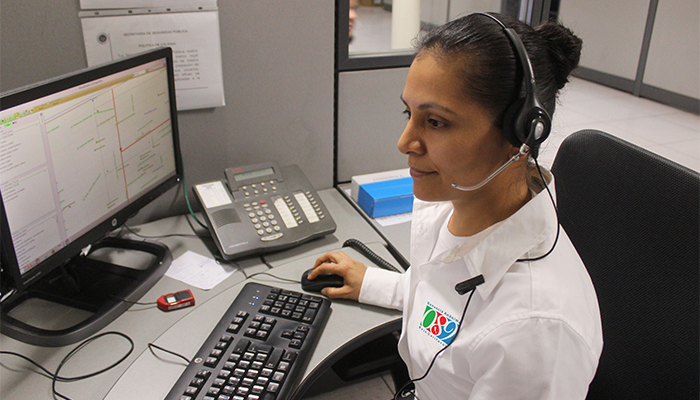
Medical Office Administration

Medical Office Administration

Medical Insurance & Coding Specialist

Medical Insurance & Coding Specialist

Personal Wellness & Health Professions
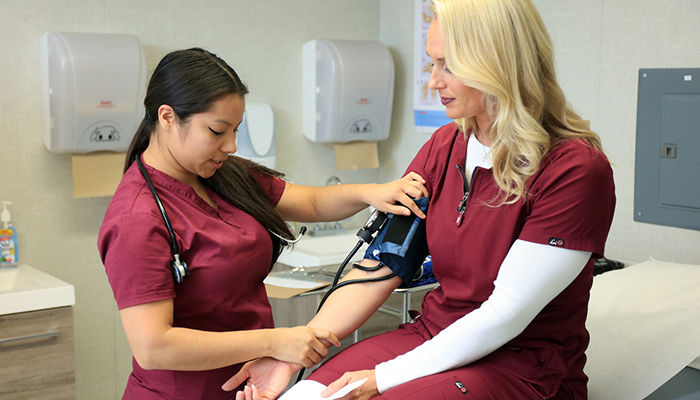
All Medical Assisting Classes
Medical Assisting FAQs
A medical assistant performs a mix of administrative and clinical functions in a medical office under direct supervision by a physician. This means a physician has to be present onsite.
Examples of MA tasks are:
- measuring blood pressure, pulse, temperature, height, weight
- performing ear irrigations, eye tests and lab tests like urinalysis, glucose tests, pregnancy tests, etc.
- giving injections into muscle or fat tissue and placing skin tests
- performing breathing tests and administering oral or inhaled medications
- drawing blood from a patient’s vein and preparing samples for lab testing
- assisting physicians with examinations and preparing patients for specialty exams and tests
- providing patient education and relaying advice according to physician directions
- updating and maintaining accurate medical records
- scheduling patients for appointments, tests and procedures
- managing a physician’s daily schedule and ensuring efficient patient flow through the office
- using medical terminology to document clinical information and extract relevant updates from incoming records and reports
- establish and maintain communication with the patient’s healthcare team
Administrative medical personnel may work in hospital departments such as admissions or medical records.
No. These are two very different things. The Certificate of Achievement acknowledges your successful completion of all required courses in a program but to get certified, you need to take an exam through an outside agency. MPC’s medical assisting program is recognized by the American Medical Technologists (AMT), and, upon completion of the MA program, students are eligible to take that agency’s exam to earn the Registered Medical Assistant (RMA) credential, which is the same as certification.
Medical Assisting involves every aspect of patient care. You get the full picture and will find many opportunities to develop your talents and interests along the way. You may at some point choose to become a specialty MA in fields such as dermatology, orthopedics, ophthalmology or pediatrics. Continuing education courses to earn additional certificates such as: pharmacy technician, x-ray technician, lab technician, health IT technician, etc. are available throughout the Bay Area or online and can add opportunities and versatility to your healthcare career.
MPC offers certificate choices for administrative medical office careers that don’t involve direct patient care. You will learn about anatomy, pharmacology and medical terminology and train in office procedures from patient reception to insurance billing. Examples of non-clinical career choices are: medical receptionist, insurance specialist, coding/billing specialist, schedule coordinator, medical records specialist, scribe or medical transcriptionist. New career opportunities open as the healthcare field evolves using technology and advances in patient care.
Courses for the Certificate of Achievement can be completed in 3 semesters* with full-time attendance.
An Associate of Science degree can be earned in approximately 2 years with full-time attendance.
*After completing all of the MA courses, students complete a one-month (160 hours) externship in a medical facility. This is NOT required for the two administrative programs.
Yes. There is no requirement to enroll full time. We want to make our programs accessible to students who have jobs or family responsibilities outside of school and we understand that full-time enrollment is not possible for everyone. Each course stands on its own but be sure to follow a logical order in your course selections, see next question.
Some courses are offered every semester and at different times. Some courses are only offered during spring or fall semester, and some courses have prerequisites. Your counselor can help you make a plan that fits your life.
Be sure to plan study time in addition to class attendance. Each course has a set amount of units based on relative difficulty and time investment. Each unit for a course carries an expectation of at least 2 hours of home study time per week. For example, you should plan to study 6 hours per week for a 3-unit course.
A degree is not required to work as an MA or medical administrative assistant but many employers prefer it. The additional general education classes add depth to the student’s education and enhance his/her performance as a professional healthcare assistant. A degree may be required for advancement in the field or to lay the foundation for additional education down the road.
There is no official enrollment process into the MA programs at MPC. You should meet with one of the college’s counselors to create an individualized education plan before registering for classes. If you plan on becoming a medical assistant, you also need to make an appointment to meet with the MA Program Coordinator, Gordon Gensel, within 4 weeks of starting your first semester so we can discuss your goals.
It is not necessary to commit to any of the MA programs before taking courses. Many of our courses are very well suited to provide continuing education to working MAs or anyone interested in healthcare. Check the course requisites before enrolling.
We offer an online medical terminology course and plan on adding other online courses in the future. Check our schedule for updates each semester. We are always looking to make it more convenient for our students to take classes at MPC!
California Community Colleges charges a set fee for units taken for credit at a community college. Check with our Admissions & Records office for the most current rates. Most courses also require purchase of a textbook and materials. Some additional fees apply for things like parking and student health services. Financial aid or student loans are available. For more information about fees and program requirements, see the current edition of the college catalog. The total cost for a Certificate of Achievement is typically around $5,000, a very good bargain for very comprehensive education!
Some general education courses may be transferable. Your counselor will determine whether or not they meet MPC standards. Medical assisting courses are generally not transferable to and from other colleges.
Entry-level MAs may earn from $14 to $20 per hour, depending on the type of clinic, responsibilities and location. Many employers base wage increases on performance, which means that an efficient and motivated MA can potentially advance rapidly on the pay scale. Many healthcare employers offer health insurance and other benefits. The Bureau of Labor Statistics projects substantial employment growth for MAs over the next few years.
At times, employers request referral of our best and brightest. Sometimes, a student is hired by his or her externship site. All the material covered in school directly relates to the field and any recommendation for job placement is based on a student’s classroom performance, competency and professionalism. With hard work and determination, success is achievable and it starts on day 1. The local healthcare industry is growing, and employers have been asking for more of MPC's medical assisting graduates! In fact, we have had to extend our offerings to try and meet the demand in the Monterey area.
Please email the Medical Assisting department chair at ggensel@mpc.edu or contact us at cte@mpc.edu.
Prepared for Workplace Realities
